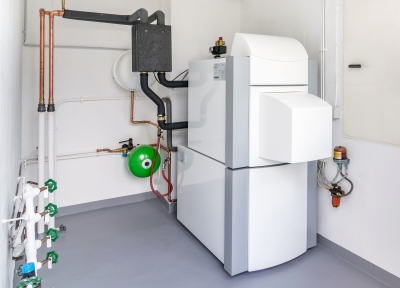What are the differences between residential boiler vs industrial boiler? Find out here.

Residential Boiler vs Industrial Boiler: Differentiating The Two
Residential Boiler vs Industrial Boiler: Let’s Talk Residential
Hot water boilers or hydronic boilers are those that are used in homes, offices and other small buildings or dwellings. A residential boiler uses hot water to provide heat for the home. The water is brought to a boiling point and is then circulated through pipes and radiators to provide heating. Additionally, the boiler is also used for the hot water itself, that is distributed to the bathrooms, kitchen and other water sources.
The innovative central boiler system veers away from the traditional heating that needs to be localized in each room of the house. A centralized heating allows you to save money from your power bill, which usually shoots up during winter.
Boiler installation and boiler repair are not DIY- type of jobs. A registered gas safe engineer must handle these issues to ensure safety and efficiency. Boiler service done regularly will prolong the life of your boiler and avoid costly repairs.
Residential Boiler vs Industrial Boiler: Let’s Talk Industrial
An industrial boiler typically uses steam to for its purpose. This is referred to as steam boiler. Generally, the application, benefits and principle are the same for residential and industrial boilers. Industrial boilers generate steam that is used to drive turbines that produce electricity, as opposed to being used merely for heating purposes.
The way the steam circulates in the system is classified into three:
- Natural Circulation
- Forced Circulation
- Zero Circulation
Boilers can also be classified into their source of fuel:
- Coal boilers
- Gas boilers
- Oil burners
- Electric boilers
- Wood boilers
- Bark boilers
- Alternative fuel boilers
RJ Gas Heating specializes in boiler problems. Call us today for information on residential vs industrial boilers.








